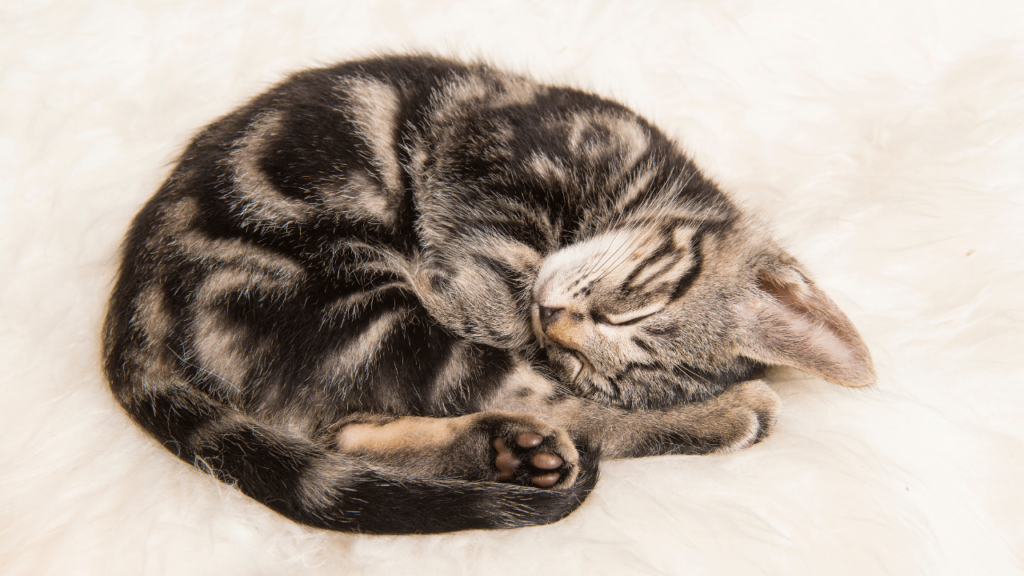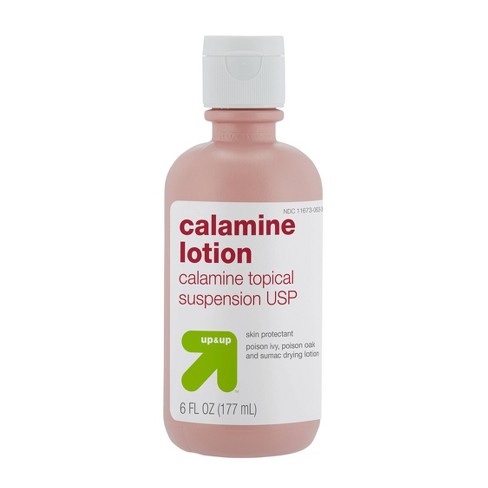Calamine lotion is a topical medication used to treat various skin conditions.
It is made from zinc oxide and iron oxide and has anti-itch and astringent properties.
It works by creating a barrier on the skin that helps to protect it from further irritation.
Calamine lotion is available over the counter and does not require a prescription.
But does that mean it is safe to use on your feline friend? We will give a succinct answer in this post, so keep reading to find out!
Reasons Why Calamine Lotion Is Not Safe For Cats

Even though lots of people believe that calamine lotion is harmless for pets, the truth is it can cause problems and you should therefore try to avoid it.
The main problem with this lotion is the zinc oxide it contains. Zinc oxide is a white, powdery mineral that is used in a variety of products, including sunscreen and ointments.
It can also be found in small amounts in some foods, such as oysters and fortified cereals.
While zinc oxide is considered safe when used topically or in food, there is some concern that it may be harmful if inhaled by cats.
The following are some of the harmful effects of calamine lotion (specifically zinc oxide) in cats:
1. Unusual Flavors Attract Cats
Studies have shown that cats are naturally attracted to unusual flavors. This explains why kitties prefer foods that are higher in protein levels or why they are more drawn to foods that emit strong aromas.
Granted, each cat is different and not all will be attracted to the same flavor.
However, the fact that your cat might be attracted to the lotion flavor on their skin is reason enough to avoid using it.
2. Calamine Lotion Can Cause Gastrointestinal (GI) Issues
Calamine lotion contains contain zinc oxide which is known to be one of the causes of GI diseases.
Some common GI diseases include constipation, diarrhea, and vomiting.
Even though these conditions can be caused by some underlying health issues, they are mostly caused by dietary and environmental factors – like ingestion of zinc oxide.
3. Calamine Lotion Can Cause Anemia
Inhaling zinc oxide can irritate the lungs and cause difficulty breathing. It can also cause anemia, which is a decrease in the number of red blood cells.
Cats are particularly susceptible to the effects of zinc oxide, as they have a higher respiratory rate than other animals.
As a result, they may be more likely to develop problems if they inhale zinc oxide.
If you think your cat has inhaled zinc oxide, it is important to seek veterinary care immediately.
Your vet will likely perform a blood test to check for anemia and may also recommend x-rays to check for lung damage.
Treatment will depend on the severity of the condition but may include oxygen therapy and IV fluids.
In severe cases, a blood transfusion may be necessary. With prompt treatment, most cats recover from the effects of zinc oxide exposure without any long-term problems.
4. Only Use Calamine Lotion If a Vet Prescribes It
The only exception for using calamine lotion is if your vet has expressly prescribed it.
In some cases, a vet might prescribe calamine lotion as a remedy for rashes, itches, and bites from insects.
In such cases, make sure to strictly adhere to the instructions of the vet.
Also, observe your cat keenly to ensure there aren’t any side effects.
If the rash persists after applying the lotion or seems to be causing your cat discomfort, take them back to the vet immediately.
Conclusion
Calamine lotion may be effective in dealing with rashes and insect bites but don’t be too quick to use it on your cat.
This lotion could easily cause all manner of health problems for your cat including anemia and gastrointestinal diseases.
There are lots of other safer remedies. For instance, you may want to consider using a topical antihistamine instead of calamine lotion.
Whatever the case may be, talk to your vet and let them advise you on the best course of action.
Related Post: Is Bactine Safe For Cats?

Hi! I am Eleanor Price. I started this website after my cat, Louie, almost died from a case of botulism (a type of food poisoning often caused by bacteria that grow on food items). Turned out that my cat’s diet was the problem. I have made it my duty to provide the best information and recommendations about everything cat lovers need to know about their felines’ health and wellbeing. My goal is to find the most informative content on anything feline-related and share it with fellow hardworking kitty lovers.

